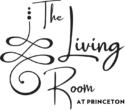According to the National Center for Drug Abuse Statistics, 16.3 million Americans aged 12 or older abused prescription drugs in the past year. Additionally, 18.4% of Americans (52 million) purposefully misused prescription drugs at least once in their lifetime.[1]
Keeping this in mind, prescription drug abuse is extremely common, and some who abuse prescription drugs develop an addiction.
Addiction to prescription drugs can be extremely dangerous because many individuals turn to the street for illicit medications once they have run out of their prescriptions. This causes people to take illicitly manufactured pills, oftentimes accidentally buying counterfeit drugs that contain dangerous substances like fentanyl.
Because of the risks associated with prescription drug abuse and addiction, individuals need to seek professional help. Thankfully, there is a variety of substance abuse treatment programs individuals can attend in New Jersey to recover from prescription drug addiction. Learning about the different prescription drug rehab options can help clients determine which program is right for them.
Types of Prescription Drug Rehab Programs Offered in New Jersey
Rehab options include:
Medical Detox
When an individual is addicted to prescription drugs of any kind, quitting cold turkey is dangerous. Because their body has become dependent on the substance of abuse, they will experience symptoms of withdrawal if they abruptly quit using prescription drugs.
Medical detox is designed to help individuals overcome their symptoms of withdrawal in a safe and controlled medical setting. Rather than suffering through severe and potentially life-threatening withdrawal symptoms, medical detox programs provide their patients with tapering medications and life-saving medical treatments.
The length of a prescription drug detox program will depend on a variety of factors, including:
- The type of prescription drug that was abused
- How long the individual was addicted
- How much of the drug the individual was taking at once
- Whether the individual abused additional substances
- Whether the individual has co-occurring mental health conditions or medical conditions to address
- Age, weight, gender, and additional medical history
Inpatient Rehab
Inpatient prescription drug rehab programs are the most intensive form of addiction treatment. These programs require patients to reside and attend treatment sessions at the facility. This allows staff members to provide patients with 24/7 monitoring, support, and care.
Services offered during an inpatient program for prescription drug addiction include:
- A thorough assessment of medical, substance abuse, and mental health history
- Individual therapy
- Group counseling
- Specialized counseling groups for specific issues (i.e. trauma-informed groups or family therapy groups)
- Access to medical and psychiatric care
- Random drug testing
- Dual diagnosis treatment
- Medication-assisted treatment when applicable
- Relapse prevention planning and continued care options
- 12-step facilitation groups
Typically, inpatient rehab lasts anywhere from 30 days to 90 days depending on the individual’s needs.
Partial Care
Partial care (PC) or day treatment is often the next step after an individual completes medical detox and/or inpatient treatment. Partial care programs allow the individual to live at home or in a sober living community while they attend treatment sessions at a facility 4-7 times a week for 6 hours a day.
While partial care is less intensive than inpatient treatment, it still provides patients with a sense of accountability and structure. Additionally, the same services are offered in partial care as inpatient treatment programs. The only difference is patients are expected to be self-motivated to attend their individual therapy and group counseling sessions each day.
Most individuals stay in a partial care program for 30 to 60 days, however, the length of these programs is on a case-by-case basis.
Intensive Outpatient (IOP)
Intensive outpatient programs are considered to be a step down from partial care programs. In other words, IOPs offer less intensive care and more freedom. Because of this, most individuals attend one of the more involved forms of prescription drug rehab programs before enrolling in an IOP.
During an intensive outpatient program, patients live at home and typically attend individual therapy and group counseling sessions 3 to 4 times a week for 3 to 6 hours at a time. The exact number of days and hours spent at an IOP facility depends on the program’s rules and the individual’s specific needs.
The services offered at an IOP include:
- Individual therapy
- Group counseling
- Random drug testing
- Holistic treatments like art, music, or yoga therapy
- 12-step meetings or other forms of addiction support groups
- Relapse prevention planning and continued care services
Outpatient (OP)
While IOPs require patients to attend treatment sessions 3 to 4 times a week for 3 to 6 hours at a time, outpatient programs only require 1 to 3 days of attendance for 1 to 3 hours at a time. In other words, traditional outpatient programs (OP) are the least intensive form of prescription drug rehab in New Jersey.
OP prescription drug treatment facilities still provide patients with individual therapy and group counseling sessions, The only difference between OP and IOP is the level of intensity and frequency of treatment sessions.
Additionally, it is important to note that individuals who work full-time jobs tend to prefer outpatient programs. However, OP is not recommended as a stand-alone program for individuals with moderate to severe addictions or co-occurring mental health conditions.
Find a Prescription Drug Rehab Program in New Jersey
If you or a loved one suffers from prescription drug addiction, professional treatment is necessary. Thankfully, there are tons of options when it comes to treatment programs for addiction.
At The Living Room, can help you with medical detox, partial care, intensive outpatient, and outpatient programs. Contact us today for more information on how to get started.
References:


